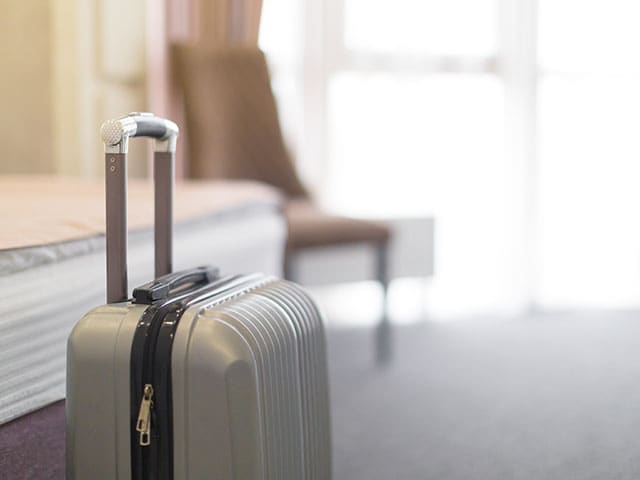
You might be interested in cruising, but not sure where to start. The Cruise Lines International Association may be a good place to start. This consultative, non-profit association works to create safe and healthy environments for cruise ships. They also offer a training program for travel agents and sponsor events to promote the cruising industry. The following information is available about the association:
CLIA (the Canadian Institute for Legal Advice) is a nongovernmental consultative group.
CLIA, an international non-governmental advisory organization of cruise lines, advocates for its members. The group sponsors events to promote cruise vacations. The group sponsors the World Largest Cruise Night media blitz, which highlights the importance and offers marketing programs for agents. The organization is also known for its annual Hall of Fame Gala, an industry-recognized event that includes ship inspections, intensive training, trade show, and panels featuring leading executives in the cruise industry.
The UK government is committed to fighting crime at sea. However, CLIA has been working on guidelines that are proportionate for different sizes and types of ships. The International Maritime Organization is a specialized United Nations agency. The IMO is charged to improve safety at sea, protect the environment and prevent ships from polluting oceans.

It advocates policies and practices to foster a safe, secure, & healthy cruise ship environment
This document outlines the risks that passengers, crew and other cruise ship personnel face. There are several public health interventions that can reduce the likelihood of disease outbreaks. These include screening for COVID-19 which is the most common traveler-infected respiratory virus. These recommendations include improving onboard medical capacity, reducing risks of asymptomatic transmission, and using high-quality masks and respirators, including KN95. Crew members should always wear these masks, whether they are indoors or in crowds.
Another area that the cruise industry should adhere to is maritime safety regulations. IMO is the United Nations agency for marine safety. It is responsible for the safety of ships and reducing pollution on the seas. Since its inception in 1948, the organization has been focused on safety and prevention of maritime pollution. It has not issued any regulations regarding cruise ships but it is responsible to develop best practices for improving safety and protecting the environment.
It offers a comprehensive program of training travel agents.
The cruise lines international association offers a comprehensive travel agent certification program designed specifically for the cruise industry. The program is progressive and focuses on practical experiences. There are five levels of certification. Travel agents will learn advanced techniques for sales, marketing, and presentation during the course of certification. An agency CLIA will issue a letter of confirmation to all agents who successfully complete the course.
CLIA CDL is a program for travel agents who hold management positions in a CLIA affiliated travel agency. This comprehensive program includes six courses that must be taken and three electives. Graduates of the program receive the designation of CTA and can sell cruising to a variety of clientele. The cost of the program is $59 and does not include enrollment fees or ship inspections.

It sponsors events to raise the profile of cruising
CLIA stands for Cruise Lines International Association. Its members include travel agents and suppliers, as well as cruise lines. Its events increase the visibility of cruising and help the industry grow. CLIA hosts the World Largest Cruise Night as well as National Cruise Vacation Month. The Hall of Fame Gala at CLIA is a must-attend for industry executives and travel agents.
CLIA announced recently that the Gibraltar Tourist Board had entered into a long-term association partnership. The partnership will allow the board to boost its brand image and increase brand awareness across the region. CLIA's flagship conference will be held in Southampton, England in 2022. The annual CLIA cruise forum will take place in December. Sponsoring CLIA's events will also provide Gibraltar with trade exposure through the association's website, newsletter, and yearbook.
FAQ
Are cruise ships safe?
Yes, cruise vessels are safe places to travel. Cruise ships are equipped to handle the most sophisticated technology and security measures. Safety standards are also adhered to by cruise ships. Crew members receive extensive training and must pass background check. Before boarding the ship, passengers must be screened. Some cruise lines require passengers to provide proof of vaccinations against certain illnesses. If you ever have concerns about your safety while on board, contact the cruise line's customer relations department immediately.
What 4 things determine the cost of a cruise?
The main factors that will determine the price of your cruise are how much time you want to spend aboard, whether or not you prefer an all inclusive package, how many guests you plan on bringing along, and what cabin type you have booked.
Can my pet be brought onboard?
Most cruise lines allow pets traveling on board. However, there are some restrictions. First, ensure your pet's health is sufficient to travel. You should not allow pets that are too sick to travel onboard. Second, service dogs are not allowed onboard. Service dogs are trained in order to aid people with disabilities. Finally, you cannot bring any type of dangerous animal on board.
What does a cruise vacation cost?
The average cruise vacation cost is $1,000 per person, plus taxes and fees. The average cost for a family vacation is $4,200. This includes all meals, drinks, entertainment, activities, excursions, port charges, gratuities, and shipboard amenities.
Are there any cons to cruising?
You should consider the pros and cons to cruising. Some people don't like spending their entire vacation on boats. Others may prefer to stay near shore or in hotels. Others might feel uncomfortable leaving land for such a long time. These concerns can be overcome by choosing a cruise that allows for plenty of time on the shore.
Should I book my cruise before or after booking my airfare?
It all depends on where in the world you are visiting. Generally speaking, it is better to book your cruise first because this gives you more flexibility in terms of dates. A cruise could be planned around summer months in Europe, for instance. For those who are planning to go to South America or Asia, it might be a better idea to book your cruise after high season to avoid high prices.
Statistics
- In addition, 10 to 15 percent gratuity is typically added to bar bills — for alcohol and soft drinks — and gratuities are applied to spa treatments. (cruiseline.com)
- *20% Gratuities Apply on Free Unlimited Open Bar; Free Specialty Dining. (ncl.com)
- You can save 15% off the total price if you book in advance of your trip. (travel.usnews.com)
- For an example of savings, Royal Caribbean offers up to a 40% discount with a dining package. (travel.usnews.com)
External Links
How To
How to keep safe while on a cruiseship
On a cruise ship, there are many things you should know before embarking on your journey. It is essential that you know how to behave while onboard a cruise ship so you don’t get into trouble. Here are some safety tips to help you enjoy your trip.
-
Be aware of your surroundings at all times. On cruise ships, people often congregate, especially at mealtimes. Because you are surrounded with people who want to talk and eat, it is easy to get distracted from your tasks. You shouldn't allow this to distract you away from the important things you need to do. If you see someone doing something dangerous, like smoking or drinking alcohol, tell them politely to stop.
-
You should always keep your roomkey close by you when you board the vessel. You will be able to tell them where you are if they need you. Your passport is also important.
-
Keep valuables out-of-reach Most cabins have drawers under their beds. That's a great place to store valuables such as passports, credit cards, and money. You should also make sure that nothing of value is visible. Your bags should be kept in the closet, so that no one can see them.
-
Hydrate. Even though cruise ships are well-stocked with water, it can sometimes be hard to remember how much. Make use of the free bottled water provided throughout the ship. Keep yourself hydrated. Dehydration can lead to fatigue, crankiness, and even fights.
-
Always pay attention to announcements. Announcements are posted everywhere, including on TV screens and public address systems. These announcements include safety procedures, emergency exits and weather reports. These announcements need to be taken seriously. They may save your life.
-
Do not leave your cabin without first locking the door. Never leave your cabin unlocked, no matter how friendly a crew member seems. Many thieves break into cabins by stealing the doors. If you need to use the restroom, ask a crew member for permission first.
-
Avoid going overboard alone. It may take time for the crew of the ship to rescue you if you fall overboard. Your body could be attracted by sharks or other sea animals. It's best to wait until help arrives.
-
Do not smoke in an elevator. These elevators are pressured, which means smoke can quickly build up. You should immediately get off if you feel dizzy, lightheaded or confused. The fresh air outside doesn't necessarily mean you can breathe easily.
-
Know how to evacuate. Each year thousands of people are killed by being stuck in elevators. Follow the instructions on screen if you are in an emergency.
-
Make sure you are familiar with the fire drill. Fire drills are held regularly, often once per day. During a drill, everyone on deck has to evacuate. Follow the crew members' directions. When the drill is finished, return to the cabin and lock your door.
-
Ask questions before you accept food and drinks. Cruisers frequently experience food poisoning. Many people are unaware that certain foods cannot be eaten aboard ships. Raw oysters, for example, are not allowed on most cruise ships. If you're not sure whether the food being served is safe, you can politely decline it and opt for another meal.
-
You should be cautious when swimming in the pool. There have been numerous instances of people accidentally falling into the pools. This is a common occurrence. You may also slip and fall on the deck. So always wear proper footwear and pay attention to your surroundings.